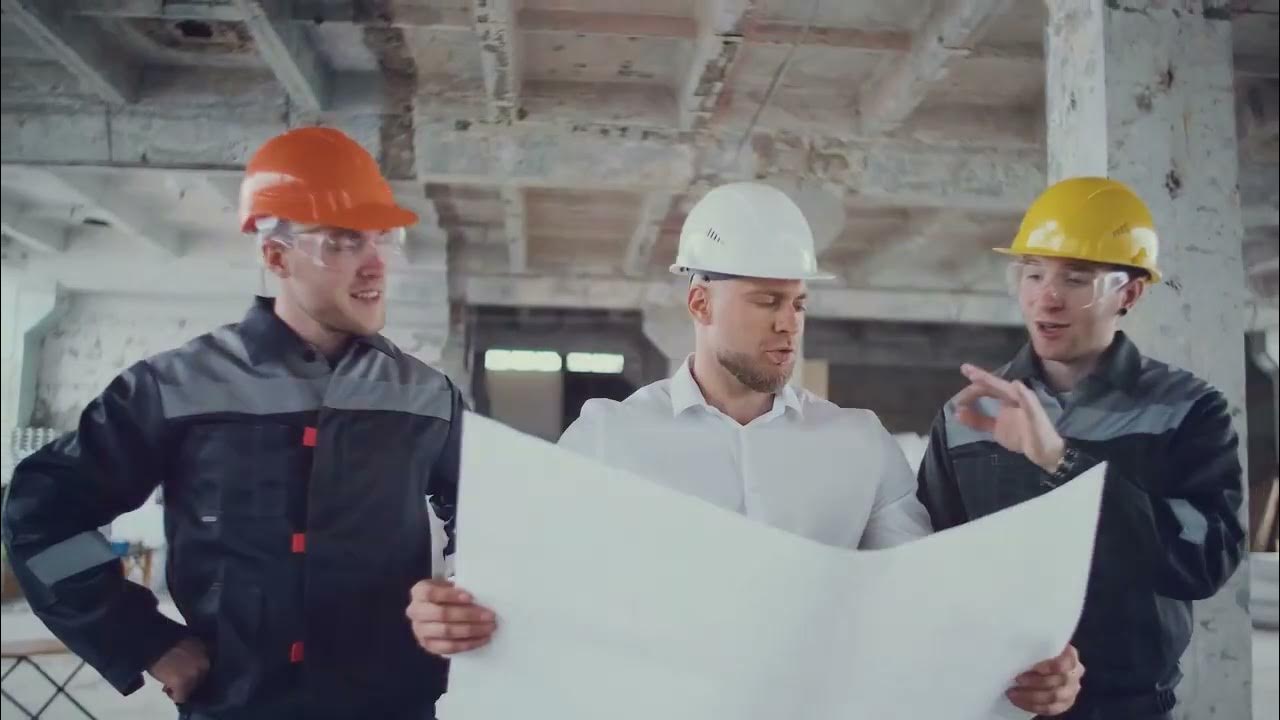How to Build a Road
Summary
TLDRThis script explores the complexities of constructing roads, particularly the engineering feats involved in building I-70 through Colorado's Rocky Mountains. It discusses the challenges of road design, including slope considerations for safety and the environmental impact of construction. The narrative delves into the history of I-70's development, the innovative techniques used to overcome geographical obstacles, and the ongoing management required to maintain safety and functionality in a dynamic landscape.
Takeaways
- 🛣️ Road design is complex due to the need for specific slopes to ensure safety, especially at turns where slopes counteract centripetal force.
- 🔍 The American Federal Highway Administration provides a formula for determining road slope based on design speed and turn radius, but this is just one interpretation among many debated by professionals.
- 🚚 Road designers prefer to adjust the road's lateral slope rather than its linear slope to accommodate vehicles, especially heavily loaded trucks.
- 🏔 Building roads through challenging terrains like Colorado's Rocky Mountains requires innovative solutions, such as tunnels or extensive earthwork.
- 🌊 Rivers often provide the flattest and most gradual routes through mountainous regions, making them ideal for road construction.
- 💡 The choice of route for a road can be influenced by factors such as population density, directness, and construction costs, not just terrain.
- 🚧 Constructing roads involves extensive earthmoving, including cutting into hillsides and filling low areas, which is both costly and complex.
- 🌱 Environmental considerations, such as protecting water sources and preventing erosion, are critical in road construction, especially in sensitive areas.
- ⏱️ The construction and maintenance of roads like I-70 are ongoing challenges that require constant management and adaptation to environmental changes.
- 💼 The operation and upkeep of major roads have significant economic impacts and require careful planning and investment, as seen with the Federal infrastructure package.
Q & A
Why are flat roads considered dangerous for driving?
-Flat roads are dangerous because a flat turn can increase the potential of a car skidding off due to the lack of friction needed to counteract the centripetal force during turns.
How do road designers counteract the dangers of flat turns?
-Road designers slope the corners inward to provide more friction and counteract the centripetal force, which helps to prevent cars from skidding off during turns.
What is the American Federal Highway Administration's role in road design?
-The American Federal Highway Administration provides a formula that converts design speed and turn radius into a suggested slope for road turns, which is their interpretation of the safest slope.
Why is there debate among road designers and mathematicians regarding super elevation formulas?
-The debate arises because some suggest more severe banking on turns to accommodate the higher centers of gravity of trucks, while others argue that steeper slopes may not be worth the benefit due to issues they create for slower moving vehicles, especially in conditions like snow and ice.
What is the maximum sideways slope typically used in road design?
-The maximum sideways slope used in road design is generally about 12 percent, but it is usually quite a bit less and is only applied on corners.
Why did the original designers of America's Interstate system avoid building roads through the Rocky Mountains?
-The original designers avoided building roads through the Rocky Mountains because of the immense challenge of finding a route that could meet the narrow accepted range of linear and lateral slopes required for safe road construction.
What was the reason for choosing the northern route for I-70 through the Colorado Rockies initially?
-The northern route was initially chosen because it followed rivers, which typically center mountain valleys and fall gradually, providing a gentle linear gradient ideal for road construction with the primary gradient correction needed in the lateral direction.
Why did Pavlo engineering company not ultimately suggest the northern route for I-70?
-Pavlo engineering company did not suggest the northern route because it was a longer, less direct route with a sparsely populated area, making it of lesser use to locals and more expensive to construct compared to the southern route.
What was the main challenge faced when deciding the route for I-70 through Vail Pass?
-The main challenge was balancing the need for a road that could safely and efficiently traverse the steep and rugged terrain of Vail Pass without disturbing environmentally sensitive areas and without requiring extensive earthwork and tunnel construction.
How did the construction of I-70 over Vail Pass impact the local environment and community?
-The construction had to carefully manage runoff and erosion to protect the watershed, especially Black Gore Creek, which was critical for local communities. It also had to adapt to the delicate landscape, using techniques like re-vegetation, retaining walls, and桥梁 to minimize environmental impact.
What measures did the Colorado Department of Transportation (CDOT) take to manage the safety and maintenance of I-70, especially in challenging sections like Eisenhower Tunnel and Glenwood Canyon?
-CDOT implemented measures such as banning Hazmat trucks from Eisenhower Tunnel to prevent catastrophic incidents, triggering avalanches remotely to prevent unexpected avalanches, and closing the highway during heavy rain forecasts to manage mudslides in Glenwood Canyon.
What is the significance of the Federal infrastructure package for the upgrades and maintenance of I-70?
-The Federal infrastructure package provides crucial funding for necessary upgrades and maintenance of I-70, ensuring the road remains safe, efficient, and capable of serving the economic and transportation needs of Colorado and the surrounding regions.
Outlines

此内容仅限付费用户访问。 请升级后访问。
立即升级Mindmap

此内容仅限付费用户访问。 请升级后访问。
立即升级Keywords

此内容仅限付费用户访问。 请升级后访问。
立即升级Highlights

此内容仅限付费用户访问。 请升级后访问。
立即升级Transcripts

此内容仅限付费用户访问。 请升级后访问。
立即升级浏览更多相关视频

The Role of Mathematics and Physics in Civil Engineering

The Simple Genius of NYC’s Water Supply System

This is How Humans Have Changed the World | Generation Earth | BBC Earth Science

MMC Gamuda | EDTP - The Journey of Connectivity

Expansive Soil's Effects on Your Foundation | RMG Engineers - Geotechnical Engineering in Denver, Co

Construction Project Coorporate Video (Kuranji)
5.0 / 5 (0 votes)
